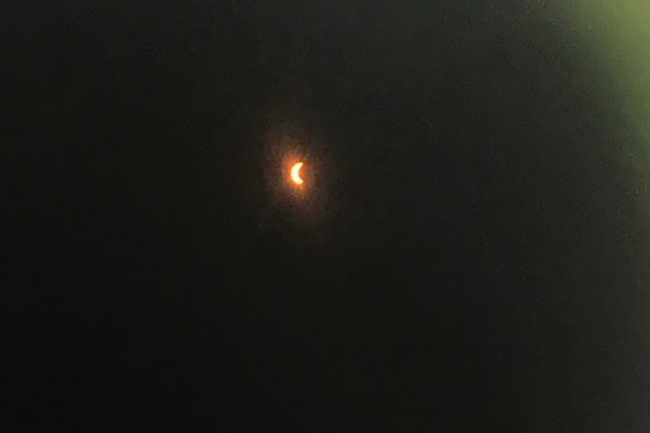Is it Really “Just an Eclipse”?
One sentiment that’s made the social media and water cooler rounds lately has been, “it’s just an eclipse…” While millions anxiously awaited today’s celestial event, it seemed a sizable number of people were unimpressed by the prospect of a total solar eclipse. In 2017, we have more intricate knowledge of space than ever before. We know that a solar eclipse is caused by the simple interference of our moon, cutting off our view of the sun. We even have simulations of an eclipse’s path, accounting for elevation and the irregularity of the moon’s surface. With all this information, it is easy to see how people were disillusioned towards today’s event. It can be equally easy to forget why, for the vast majority of human history, the blocking of the sun was a major occurrence. Here’s why it was never, “just an eclipse.”
As far as Western philosophy and history is concerned, the first Eclipse prediction was made by Thales of Miletus. Herodotus, the ancient Greek historian, recorded that Thales predicted an eclipse that would occur during a battle between the Lydians and the Medes. Herodotus goes on to claim that both sides laid down their weapons in peace once the eclipse began. The eclipse in question is debated, but a popular candidate is one that took place on May 28, 585 B.C. It is important to remember that, for many ancient civilizations, the gods were believed to directly intervene in human affairs. Chinese records of eclipses date back to the 700s B.C., and 4th century B.C. Astronomer Shi Shen left record of his prediction process for eclipses utilizing the position of the moon and sun. Even older accounts of the Ancient Orient make mention of King Zhong Kang beheading Hsi and Ho, two astronomers, over four thousand years ago for failing to predict an eclipse.
Countless religions have seen eclipses as significant throughout human history. One particularly old example can be found in the Egyptian deities dating back to the Eighth Dynasty. The Eighth Dynasty is believed to have existed in the 22nd Century B.C., over 4,000 years ago. At this point in time, humanity is still approximately 200 years away from the smelting of iron ore. Here we have the first mention of Apep, or Apophis, the Egyptian God of Chaos and enemy of the Sun God Ra. Apep was said to bring darkness to Ra’s domain in the form of night, and the two gods were occasionally said to have colossal battles, almost certainly entailing solar eclipses.
If you had the pleasure of catching today’s eclipse, then you may have noticed a change in the behavior of animals. In general, smarter animals react more elaborately to the eclipse. Insects, bats, and livestock tend to act as if night has arrived. The sounds of cicadas filled the air of Jefferson County, for instance. Smarter animals, like dogs, may act like a storm is approaching, or grow fearful. The smartest animals (namely whales, dolphins, lamas, and apes) will actually observe the celestial event. Apes have been known to gesture to the moon and sun while looking up, while lamas congregate and watch. Dolphins and whales may surface in large groups to bear witness to the eclipse. The temperature drops substantially, and stars can be seen when standing in the path at the moment of totality. Locally, downtown Dandridge’s street lights came on, with many cars’ headlights responding to the darkness automatically.
Solar eclipses are celestial wonders that have influenced entire religions, changed war tactics on the fly, and fascinated both humanity and the animals of the earth for countless ages, and are rivaled only by the falling of small meteorites as the most significant heavenly movements in human history. If you managed to experience the Great American Eclipse of 2017, then congratulate yourself on seeing a true relic of the past.










